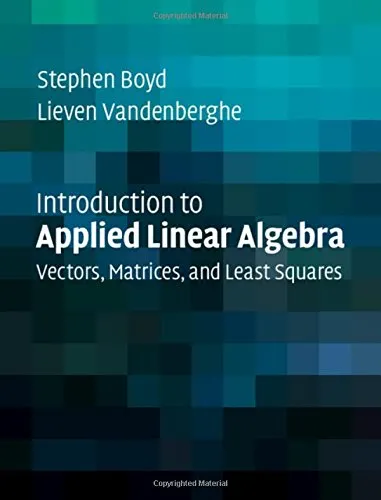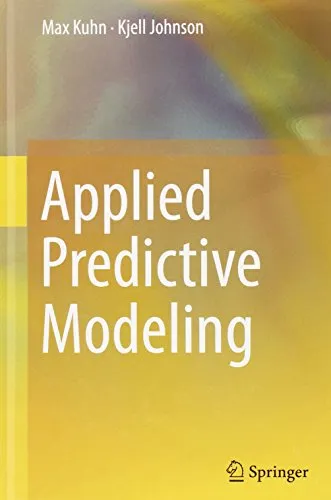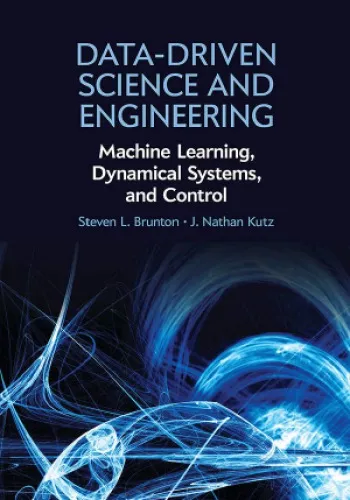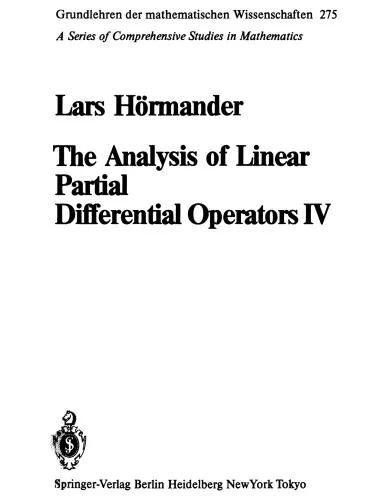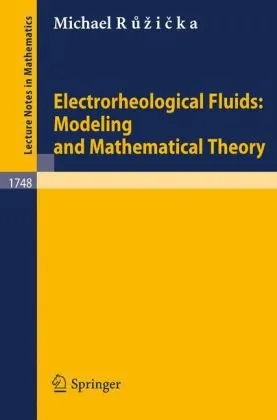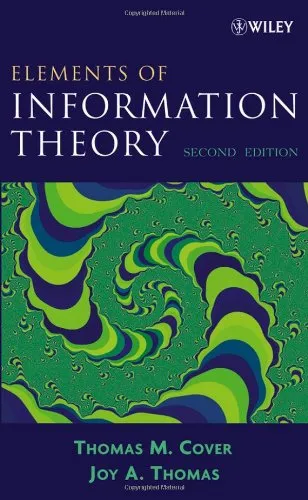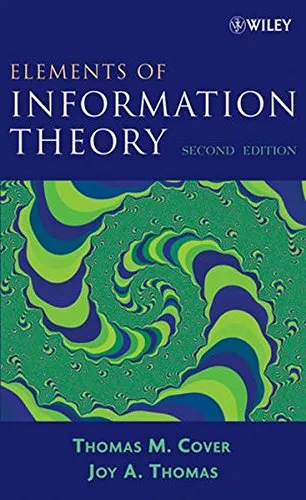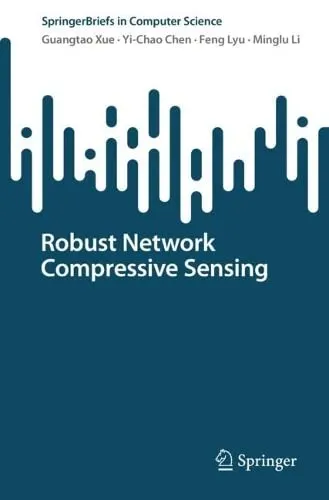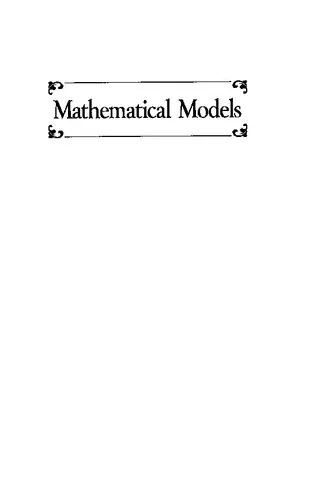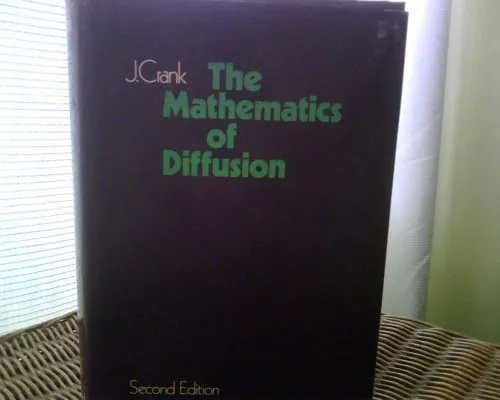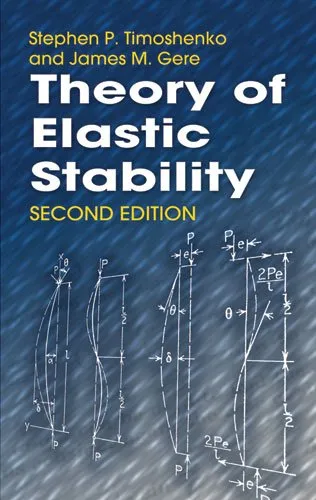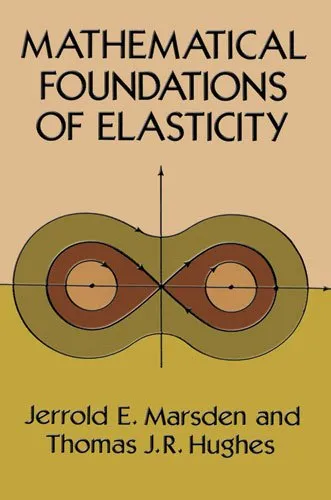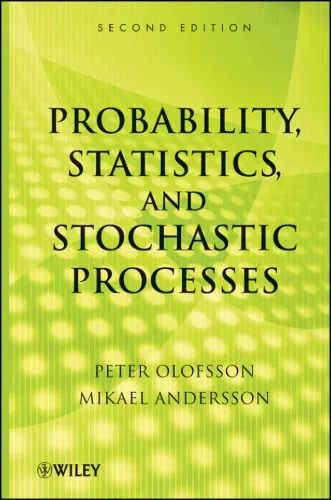Introduction to Applied Linear Algebra: Vectors, Matrices, and Least Squares
4.8
Reviews from our users

You Can Ask your questions from this book's AI after Login
Each download or ask from book AI costs 2 points. To earn more free points, please visit the Points Guide Page and complete some valuable actions.Related Refrences:
Introduction to the Book
"Introduction to Applied Linear Algebra: Vectors, Matrices, and Least Squares" by Stephen Boyd and Lieven Vandenberghe is a pioneering book that brings linear algebra to life by focusing on practical applications and computational techniques. Designed for students, engineers, and anyone interested in the real-world use of linear algebra, the book moves beyond abstract theory to emphasize problem-solving and hands-on learning. Whether you're new to the subject or looking to deepen your understanding, this book serves as an essential guide to one of the core areas of mathematics.
Linear algebra is a fundamental subject, forming the basis of many modern fields such as machine learning, data science, control systems, computer graphics, and optimization. This book introduces these exciting applications early and often, unlike traditional treatments that tend to focus solely on theoretical concepts. The authors use a refreshing pedagogical approach that combines clear explanations, extensive examples, and an emphasis on matrices and vectors. The cornerstone of the book is the least squares method, a crucial tool in countless applications.
Detailed Summary of the Book
An approachable, application-driven linear algebra guide.
The book is divided into several carefully crafted chapters that develop the reader's understanding of both the theory and practical computation of linear algebra. Central to the book are the concepts of vectors, matrices, and the least squares problem.
The early chapters introduce the fundamental operations with an intuitive explanation of vectors and matrices, including matrix multiplication, factorizations, and linear transformations. Then, the book delves deep into key areas such as linear independence, eigenvectors, eigenvalues, orthogonality, norm minimization, and subspaces.
What sets the book apart is its focus on computation and real-world problem-solving. The frequent use of examples from fields like machine learning, signal processing, and economics ensures readers understand the relevance of linear algebra in modern technology. Coding examples, often in MATLAB and Python, further reinforce the importance of algorithmic thinking.
By the end of the book, readers are equipped not just with theoretical knowledge, but with practical skills that enable them to interpret and use data effectively, analyze complex systems, and solve optimization problems.
Key Takeaways
- Understanding the fundamentals of vectors, matrices, and transformations.
- Gaining a solid grasp of the least squares method and its applications in solving real-world problems.
- Learning computational techniques with a focus on practicality and coding implementation.
- Seeing the relevance of linear algebra in data analysis, machine learning, and optimization.
Famous Quotes from the Book
"Linear algebra is not just a theoretical subject; increasingly, it is a computational and applied discipline." – Stephen Boyd & Lieven Vandenberghe
"The least squares method is at the heart of applied linear algebra; it arises everywhere in science and engineering." – Stephen Boyd & Lieven Vandenberghe
Why This Book Matters
This book is a milestone in linear algebra education because it bridges the gap between theoretical abstraction and real-world applications.
Traditional linear algebra textbooks often focus exclusively on theorem proofs and abstract concepts. While this rigor is valuable, it leaves many students and professionals without the tools to apply what they've learned in practical scenarios. "Introduction to Applied Linear Algebra" eliminates this gap and highlights the subject's power to solve real-world challenges.
The authors’ ability to blend intuitive explanations, visualizations, and hands-on coding examples makes the subject accessible even to those without previous experience in linear algebra. Moreover, the book's emphasis on machine learning reflects the vital role that linear algebra plays in shaping modern technologies and industries.
Whether you are a student looking to excel in mathematics, a data scientist aiming to improve your technical foundation, or a curious learner exploring applied mathematics, this book is an invaluable asset. It empowers readers to harness the power of linear algebra to unlock insights, develop innovations, and understand the world more deeply.
Free Direct Download
You Can Download this book after Login
Accessing books through legal platforms and public libraries not only supports the rights of authors and publishers but also contributes to the sustainability of reading culture. Before downloading, please take a moment to consider these options.
Find this book on other platforms:
WorldCat helps you find books in libraries worldwide.
See ratings, reviews, and discussions on Goodreads.
Find and buy rare or used books on AbeBooks.
1316
بازدید4.8
امتیاز0
نظر98%
رضایتReviews:
4.8
Based on 0 users review
Questions & Answers
Ask questions about this book or help others by answering
No questions yet. Be the first to ask!
